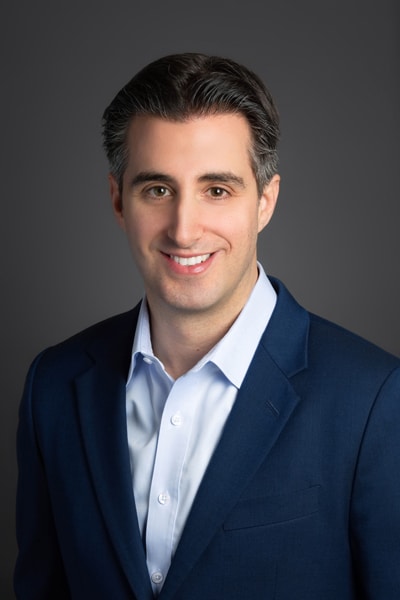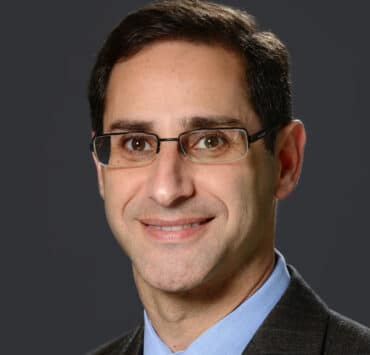|
Getting your Trinity Audio player ready...
|
Pandemic or no pandemic, dialysis is always an essential, life-sustaining treatment. But it can also be enormously complicated, especially if a patient lives in a nursing home.
Even when laying out the logistical process in the simplest of terms, Kyle Stone—executive vice president and general counsel of Concerto Renal Services—concedes that the description is still lengthy.

“For patients at nursing homes who need dialysis, they’re going to have to be shipped to an outpatient clinic three times a week,” he says. “There will be a Medi-Car or an ambulance to pick them up. They’ll have to wait in the front lobby of their nursing facility, which could take anywhere from one minute to forty-five minutes. If they’re a certain kind of patient who requires assistance or has behavioral or psychological impairments, the nursing home will have to send a full-time employee to accompany them.
Once they’re at the nearest dialysis clinic, they’ll wait in the lobby until their chair is ready. They’ll be hooked to the dialysis machine. It will take anywhere from three-and-a-half to four hours. When they’re done, they’ll wait again until they can be shipped back to their home. It’s an exhausting and demoralizing existence.” In other words, the patient loses the whole day.
Concerto seeks to change that by providing home dialysis in a dedicated space within the patient’s facility. For patients living in a nursing home, they receive treatment on-site from Concerto’s on-site dialysis staff, then go about the rest of their day without burdensome wait times and risky transportation.
“They essentially get their lives back,” Stone says.
Like many in-house counsel, the nature of Stone’s work shifts on a day-to-day basis, but given the very specific care and service that Concerto provides, there’s a significant focus on interacting with regulators around the country.
“When we go to a new state, it’s incumbent upon us to educate regulators, as well as senior officials of that state’s health department, so that they understand the services we bring and how it all coincides with the federal legal framework,” Stone says. “For states that have a specific licensure requirement—about half of them—they’re going to be reviewing all aspects of our business and operations before we even start treating patients. So every state is like a new adventure.”
Before Stone was hired in 2018, Concerto was only servicing nursing homes in Illinois, with designs on expanding. Since coming aboard, he’s helped lay the regulatory and legal groundwork for branching out into seven other states. Whenever he and his legal team are looking to bring Concerto’s dialysis care to a new market, they map out what needs to be done at least nine months in advance of when they aim to be fully operational.
“At the end of the day, it’s my job to understand what’s around the corner and how we’re going to deal with it,” Stone says. “I’m not always going to be able to slay the dragon. But knowing it’s there and being able to prepare will allow us to be on much better footing.”
Needless to say, the dragon around the corner in March 2020 was unique, ferocious, and unforeseeable. At that point, Concerto had planted flags in two of their seven additional states via acquisition.
But the remaining five were set to happen organically. Wisconsin was first on the docket; clinical operations had begun and everything was in place from a regulatory standpoint. The only remaining item was the unannounced state survey, which Concerto knew was to take place by early April.
“COVID was a tragedy for our industry, but in some respects, it also gave us the keys to getting to newer markets much faster.”
Then the COVID-19 pandemic turned the entire world on its head. By March 20, a federal memorandum had suspended all states from conducting initial certification surveys.
“That was obviously frustrating for us,” Stone says. “We were in the last two weeks of our survey window.”
Most painful of all was that Concerto provides exactly the kind of service that would benefit nursing homes in a global pandemic—a time when skilled nursing facilities everywhere were becoming hotbeds for the coronavirus, thus preventing residents and staff from going in or out. The high stakes weren’t lost on Stone, which led to him researching one last option that he was admittedly hesitant to use for certification: an accreditation organization (AO).
“AOs in this context are essentially nonprofit, nongovernmental entities that have been given authority by the Centers for Medicare & Medicaid Services (CMS) to survey organizations such as our own,” Stone says. “The difference is, you have to pay them; it’s expensive, and certainly not a cost we had factored in.”
But Stone had no other options. If he wanted to continue Concerto’s expansion in the age of COVID—a time when the company’s services were sorely needed—he would have to pull the trigger and go with an AO. So he did.
To his relief, the strategy not only paid off but turned out to have several benefits for Concerto.
“For one, they promise to come within thirty days, rather than the usual ninety,” Stone says, comparing AOs to the usual state surveyors. “The value of the extra sixty days or so would easily exceed the cost of paying for the accreditation services. Two, we have the same organizations’ surveyors every time, which promotes consistency and understanding. While the AO’s standards are even higher than that of the states’, we always know what to expect. COVID was a tragedy for our industry, but in some respects, it gave us the keys to getting to newer markets much faster.”
In the year-plus since that initial inspection in Wisconsin, Concerto has worked with same AO in every subsequent new state. All seven states have now been certified, with the pursuit of certification in two new states—Indiana and Missouri—taking place in the coming months, and then a slew of additional states later in 2021.
To illustrate the scope and impact of the work conducted by Concerto in a relatively short period of time, Stone shares a recent WhatsApp message from the company’s CEO, Shimon “Shimmy” Meystel, saying that in March the company dialyzed 1,031 different patients. “To think that over 1,000 people directly benefitted from what we do in a single month is incredible,” Meystel wrote.
“It serves as a reminder that doing good and doing well are complementary,” Stone says.
Kitch, Drutchas, Wagner, Valitutti & Sherbrook:
“Kyle is a visionary and his ability to focus on the big picture has been critical to the growth of Concerto. His clear communication with retained counsel promotes efficient dispute resolution.”
–Mario Cusumano, Principal


